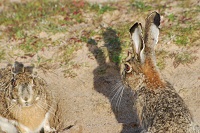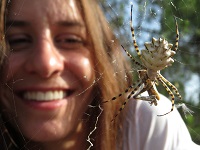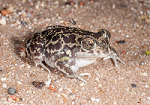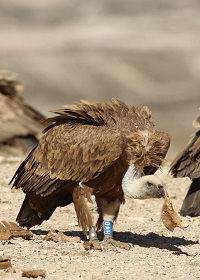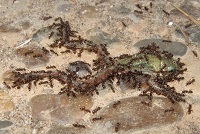
Welcome
Welcome to the official website of the Doñana Biological Station (EBD-CSIC)...

The Doñana Biological Station: EBD-CSIC
The Doñana Biological Station is a public Research Institute belonging to the Spanish Council for Scientific Research CSIC in the area of Natural Resources...

Mission
Our fundamental mission is to carry out multidisciplinary research of the highest standard directed to understanding the way in which biodiversity is generated, maintained and deteriorates, as well as the consequences of its loss...

Our methods
We apply many techniques within a multidisciplinary framework, from molecular genetics to remote sensing, and from modelling to physiological and isotopic analyses...

Monitoring the environment
Monitoring biodiversity at the Doñana Natural Space cover a wide range of communities, including both terrestrial and aquatic organisms...

Aims
Our aims include the study of the ecological and evolutionary processes by combining field work, mathematical and statistical models and physiological and genetic analysis...
 Outstanding
Outstanding
-
 La Fundación Jaime González-Gordon ofrece cuatro becas para el desarrollo de Trabajos de Fin de Máster sobre Doñana
La Fundación Jaime González-Gordon ofrece cuatro becas para el desarrollo de Trabajos de Fin de Máster sobre Doñana -
 Five contracts to carry out a doctoral thesis in the Doñana Biological Station - CSIC
Five contracts to carry out a doctoral thesis in the Doñana Biological Station - CSIC -
 Actividades de la Estación Biológica de Doñana en la Noche Europea de los Investigadores
Actividades de la Estación Biológica de Doñana en la Noche Europea de los Investigadores -
 ICTS-RBD prepares the 30th Migratory Passerine Bird Ringing Campaign in Doñana
ICTS-RBD prepares the 30th Migratory Passerine Bird Ringing Campaign in Doñana -
 Start of selection procedure for new EBD Director
Start of selection procedure for new EBD Director
 News
News
 The Iberian hare population increases in Doñana after the decline of the European rabbit
The Iberian hare population increases in Doñana after the decline of the European rabbit
 Citizen science to study five common spider species
Citizen science to study five common spider species
 Researchers sequenced the genome of the Western Spadefoot toad, a key species to study how organisms respond to global change
Researchers sequenced the genome of the Western Spadefoot toad, a key species to study how organisms respond to global change
This work was led by the Doñana Biological Station – CSIC with the collaboration of the Centro Nacional de Análisis Genómico (CNAG-CRG) and the Barcelona Supercomputing Centre (BSC-CNS)
 Current sanitarian regulations are not enough for avian scavengers' conservation
Current sanitarian regulations are not enough for avian scavengers' conservation
These studies have been led by the Doñana Biological Station – CSIC, the University of Sevilla and the University Miguel Hernández of Elche with the collaboration of the University of Lisbon
 The economic costs of invasive alien ants total 46.000 million euros
The economic costs of invasive alien ants total 46.000 million euros
This work takes data from Invacost, the first database that compiles economic costs associated with biological invasions worldwide.

